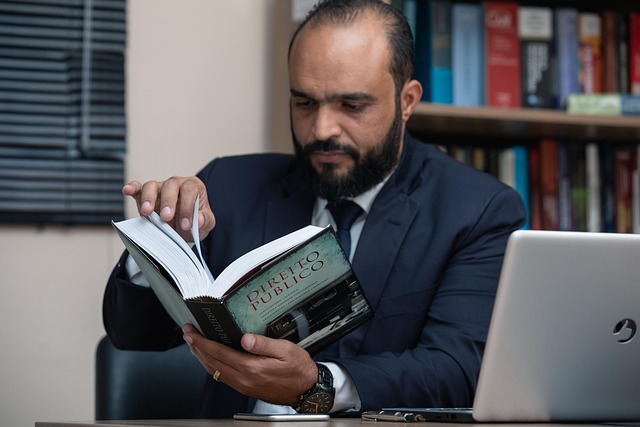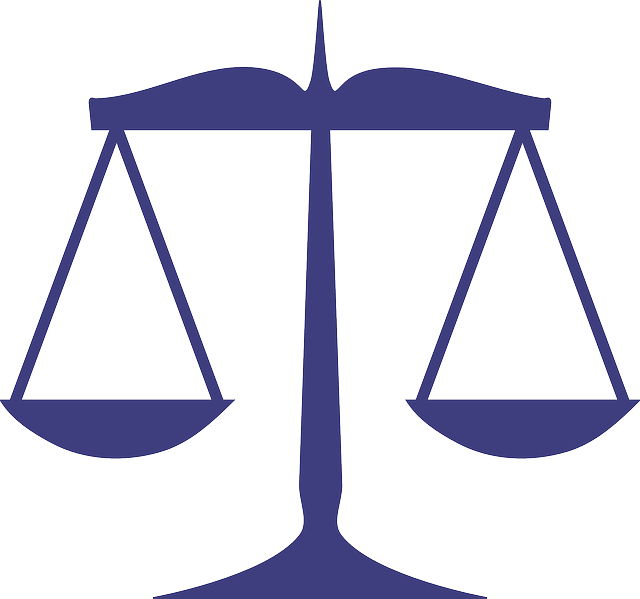
Category: Arvada Colorado Civil Rights Attorneys
Arvada Colorado Civil Rights Attorneys: A Comprehensive Guide
Introduction
In the dynamic legal landscape of Colorado, Arvada stands out as a hub for civil rights advocacy, home to a dedicated cohort of attorneys committed to fighting for justice and equality. This article delves into the world of Arvada Colorado Civil Rights Attorneys, exploring their role, impact, and significance in both local and global contexts. By examining various facets, from historical roots to technological innovations, we aim to provide an all-encompassing view of this vital profession. Readers will gain insights into the intricate workings, challenges, and future prospects of civil rights lawyering in Arvada, Colorado, and its broader implications.
Understanding Arvada Colorado Civil Rights Attorneys
Definition and Core Components
Arvada Colorado Civil Rights Attorneys are legal professionals specializing in advocating for and protecting the civil rights of individuals and communities within the city of Arvada and the surrounding areas of Colorado. Their work encompasses a broad spectrum of legal services aimed at ensuring equal treatment, justice, and freedom from discrimination based on race, color, religion, sex, national origin, disability, age, or any other protected category under state and federal laws.
The core components of their practice include:
- Anti-Discrimination Law: Fighting against unfair practices in employment, housing, public accommodations, and education.
- Racial Justice and Equality: Addressing systemic racism and advocating for policies that promote racial equality.
- LGBTQ+ Rights: Protecting the rights of lesbian, gay, bisexual, transgender, and queer individuals from discrimination and promoting their equal treatment under the law.
- Disability Law: Ensuring accessibility and equal opportunities for individuals with disabilities in various aspects of life.
- Voting Rights: Safeguarding the right to vote and combating efforts to suppress voter participation, especially among marginalized communities.
- Public Interest Litigation: Taking on cases that serve the broader public interest, often challenging government policies or practices that violate civil rights.
Historical Context and Significance
The roots of civil rights advocacy in Arvada can be traced back to the mid-20th century when the city was experiencing rapid growth and demographic changes. As diverse communities began to settle in Arvada, local attorneys played a pivotal role in addressing emerging civil rights issues. Over time, a dedicated group of lawyers emerged, forming the basis of what is now known as the vibrant civil rights legal community in this area.
Historically, these attorneys have been at the forefront of numerous landmark cases, challenging discriminatory practices and laws. Their efforts have contributed significantly to the advancement of civil rights on both state and federal levels. The work done by Arvada’s civil rights attorneys has helped shape a more inclusive and equitable society, ensuring that all citizens are treated fairly under the law.
Global Impact and Trends
International Influence
The impact of Arvada Colorado Civil Rights Attorneys extends far beyond local boundaries. Their work has influenced legal frameworks and social justice movements globally, particularly in countries with similar cultural and legal landscapes. The strategies and precedents set by these attorneys have inspired civil rights advocates worldwide, fostering a culture of equality and human rights.
Key Trends Shaping the Trajectory
Several global trends are shaping the future of civil rights lawyering:
- Increasing Globalization: With growing interconnectedness, issues like immigration, cross-border discrimination, and international human rights violations require transnational legal strategies, creating opportunities for collaboration between Arvada-based attorneys and their international counterparts.
- Technological Advancements: The digital age presents both challenges and opportunities. Online platforms can amplify hate speech and discrimination, necessitating proactive legal interventions to protect vulnerable communities.
- Emerging Social Movements: Global movements like Black Lives Matter (BLM) have sparked conversations about racial justice, prompting a surge in interest among younger attorneys in Arvada who want to contribute to these causes.
- International Human Rights Law: The increasing adoption of international human rights standards by national governments provides a framework for civil rights attorneys to hold institutions accountable.
Regional Affects
Different regions around the world face unique challenges when it comes to civil rights:
| Region | Common Challenges | Strategies/Solutions |
|—|—|—|
| North America | Deep-rooted racial disparities, systemic discrimination in law enforcement | Focus on community policing, criminal justice reform, and affirmative action programs |
| Europe | Rising nationalist sentiments, increasing migration flows | Strengthening asylum laws, promoting cultural diversity, and anti-discrimination campaigns |
| Asia | Rapid urbanization leading to discrimination in housing and employment | Implementing inclusive urban planning, labor laws, and public awareness campaigns |
| Africa | Historical injustices, ongoing conflicts | Truth and reconciliation processes, post-conflict reconstruction initiatives, and empowerment of marginalized communities |
Economic Considerations
Market Dynamics
The civil rights legal market in Arvada is dynamic and diverse, reflecting the city’s evolving demographic landscape. The demand for specialized civil rights attorneys has been steadily increasing due to a growing awareness of these issues among businesses, institutions, and individuals. This trend presents both opportunities and challenges for practitioners:
- Opportunities: Diverse clients seeking specialized legal advice, potential for public interest work, and the chance to shape policy through litigation.
- Challenges: Balancing the need for specialized expertise with the demand for cost-effective solutions, keeping up with rapidly changing laws and regulations.
Financial Aspects
Civil rights attorneys in Arvada operate across a spectrum of financial models:
- Private Law Firms: Many attorneys work in private practice, offering their services to clients who can afford them. These firms may have dedicated civil rights practices or focus on specific areas like employment law.
- Non-Profit Legal Services: Several non-profit organizations provide legal aid to low-income individuals and communities, ensuring access to justice for those who cannot afford private attorneys.
- Government Agencies: Some attorneys work within local, state, or federal government agencies, promoting civil rights through policy development, enforcement, and public education.
Impact on the Local Economy
The presence of a robust civil rights legal community contributes positively to the local economy:
- Job Creation: Legal firms require support staff, paralegals, and other professionals, stimulating local employment.
- Business Development: Businesses that prioritize diversity, equity, and inclusion (DEI) practices may attract a broader customer base, fostering economic growth.
- Community Engagement: Civil rights attorneys often engage in community outreach programs, enhancing social capital and civic participation.
Technological Innovations
Digital Tools for Legal Practice
Technology plays a pivotal role in modern civil rights lawyering, offering both practical advantages and ethical considerations:
- Online Research and Case Law: Attorneys can efficiently research legal precedents and stay updated on changing laws using digital databases.
- Client Management Software: Streamlined case management systems improve efficiency, allowing attorneys to organize client information, deadlines, and documents digitally.
- E-Discovery and Data Analysis: Advanced technologies aid in reviewing large volumes of data during discovery phases, helping uncover relevant evidence for civil rights cases.
- Online Legal Education: Continuing legal education (CLE) courses are readily available online, enabling attorneys to enhance their skills and knowledge without leaving Arvada.
Ethical Considerations in the Digital Age
As technology advances, so do the ethical challenges:
- Data Privacy and Security: Protecting client confidentiality and sensitive information is crucial when using digital platforms for case management and communication.
- Cyberslapping and Online Harassment: Civil rights attorneys may face online backlash or cyberattacks from those opposed to their work, requiring robust online security measures.
- Equal Access to Justice: Ensuring that technology does not exacerbate existing inequalities, such as the digital divide, is essential for providing quality legal services to all clients.
Challenges and Future Prospects
Overcoming Barriers
Civil rights attorneys in Arvada face several challenges:
- Limited Resources: Many non-profit legal organizations struggle with resource constraints, affecting their ability to take on complex cases or engage in public education programs.
- Legal Complexity: Civil rights issues often involve intricate legal matters, requiring attorneys to stay updated on evolving laws and regulations.
- Public Apathy: Lack of awareness or understanding of civil rights issues can make it difficult to secure support for important causes.
Future Opportunities and Initiatives
Despite these challenges, the future looks promising for Arvada Colorado Civil Rights Attorneys:
- Collaborative Efforts: Building partnerships between local, national, and international organizations can amplify the impact of their work and provide access to more extensive resources.
- Community Engagement: Engaging with diverse communities through educational programs, workshops, and outreach initiatives can foster a culture of civil rights awareness and activism.
- Advocacy for Policy Change: Lobbying local and state governments to adopt policies that promote equality and justice is a powerful way to create lasting change.
- Technological Adaptation: Embracing new technologies while maintaining ethical standards will ensure their effectiveness in the digital age.
Conclusion
Arvada Colorado Civil Rights Attorneys are at the forefront of fighting for a more just and equitable society. Their work transcends local boundaries, influencing global civil rights movements and legal frameworks. By understanding the historical context, global trends, economic factors, and technological advancements shaping their profession, we can appreciate the significance of this vital legal community.
As Arvada continues to evolve, these attorneys will remain essential in addressing emerging challenges and advancing the cause of civil rights. Their dedication to justice serves as an inspiration to legal professionals worldwide, demonstrating that the pursuit of equality is a collective effort requiring unwavering commitment and innovative thinking.









